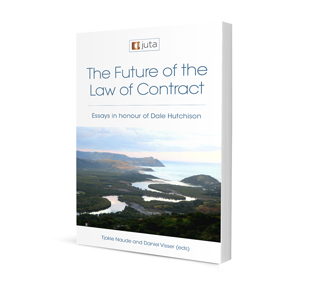
Contractual fairness: Conflict resolved?
Author A Price
ISSN: 1996-2088
Affiliations: BBusSci LLB (Cape Town) BCL (Oxon) PhD (Cantab); Adjunct Associate Professor, Law Faculty, University of Cape Town; member of the Cape Bar, advocate of the High Court of South Africa.
Source: Acta Juridica, 2021, p. 321 – 342
https://doi.org/10.47348/ACTA/2021/a12
Abstract
In 2019 Dale Hutchison called upon the Constitutional Court to resolve the apparent conflict between certain of its judgments and those of the Supreme Court of Appeal relating to the most burning issue in South African contract law, namely, the extent to which a judge can refuse to enforce an otherwise valid contract on the grounds that it would be unduly harsh, unfair or unreasonable to do so. Two of the Constitutional Court’s judgments handed down simultaneously in 2020 – Beadica 231 CC v Oregon Trust and AB v Pridwin Preparatory School – answered Dale’s call. In Beadica, the notion that abstract values such as fairness, reasonableness and good faith serve as directly applicable standards that courts may use to control contractual content and enforcement was rejected. The established Barkhuizen test for public policy should be employed instead, ‘it was held’. Nonetheless Pridwin provides fresh impetus to the horizontal application of constitutional rights to contracting parties in terms of s 8(2) of the Constitution. The courts will have to use the latter tool carefully and incrementally, particularly in the context of commercial contracting, if the careful balance between contractual fairness and certainty achieved in Beadica is to be preserved.